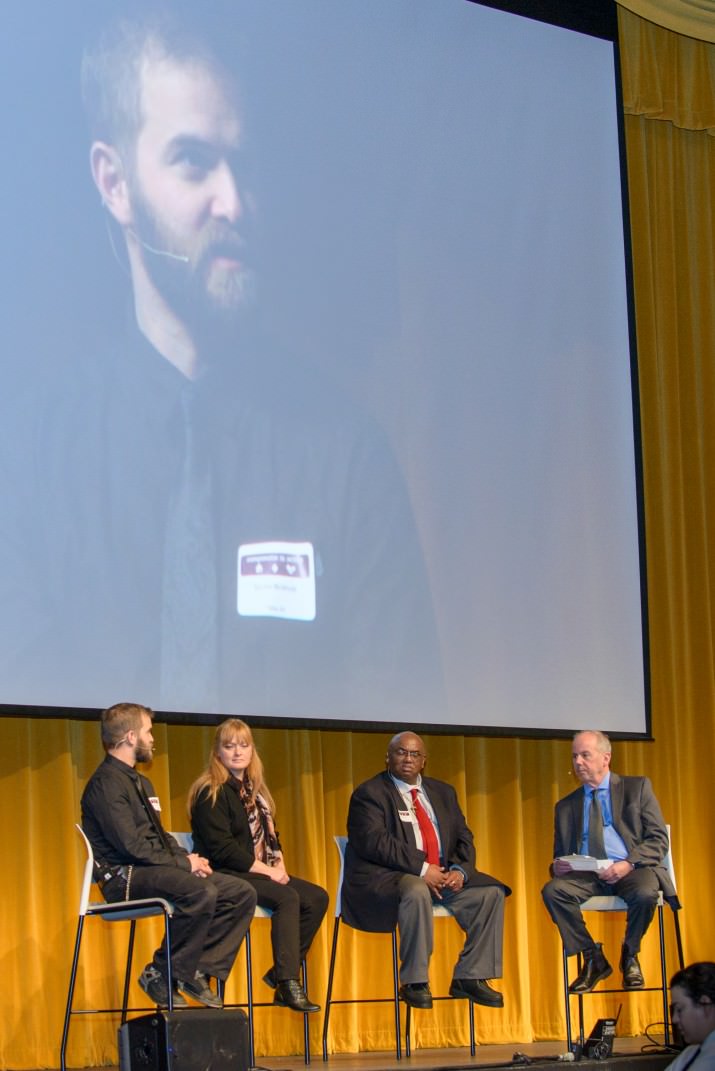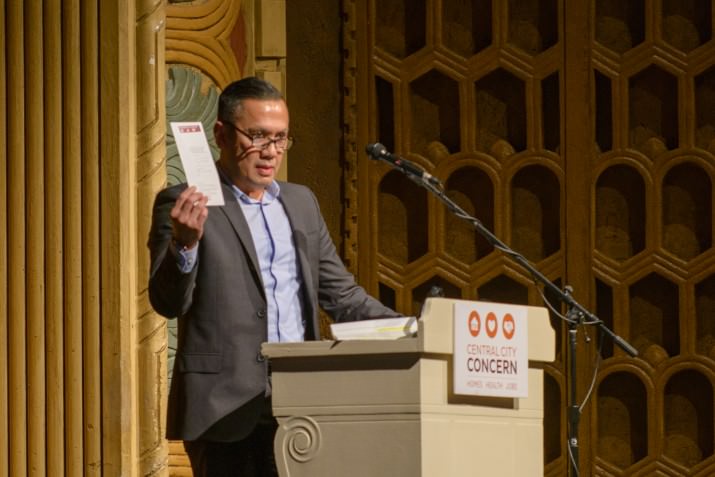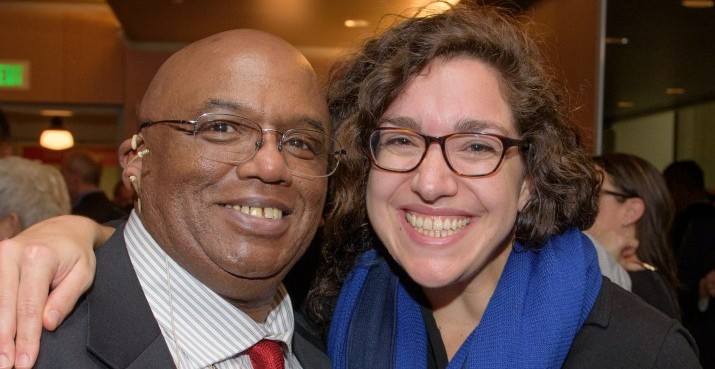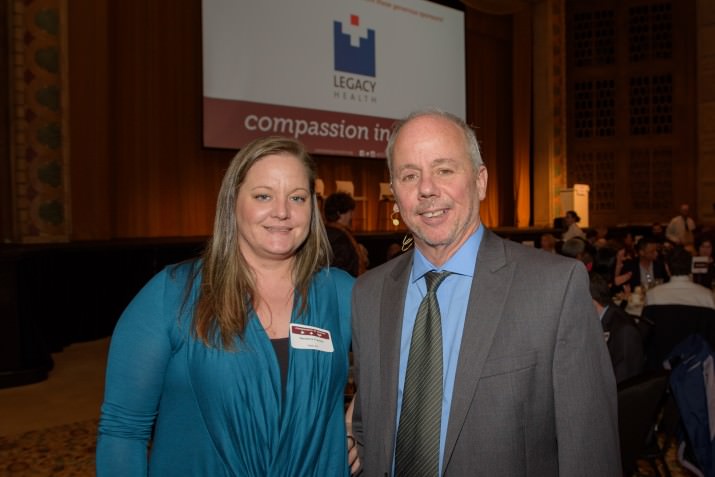Portland, November 17th, 2015. When Central City Concern held is eighth annual Compassion in Action luncheon it attracted 550 business and civic leaders and raisied more than $250,000 for its housing, healthcare and employment programs. Successful CCC client Floyd Pittman posed with CCC Nurse Manager Amy Hardy at the event. The afternoon featured remarks by the agency’s Chief Medical Officer, Rachel Solotaroff, interviews of three successful Central City Concern clients, and remarks from Ed Blackburn, CCC’s Executive Director. Guests also viewed a video about a single mother who overcome multiple barriers to find success within her family and in a meaningful career.

CCC successful clients Easten Burholz, Tammy Wilkins and Floyd Pittman recount their journeys from homelessness to self-sufficiency and fulfillment

Rico Bocala, CCC Board member, urges luncheon attendees to donate to CCC’s affordable housing, healthcare and employment programs.
From Central City Concern:
Central City Concern meets its mission through innovative outcome based strategies which support personal and community transformation.
- Direct access to housing which supports lifestyle change.
- Integrated healthcare services that are highly effective in engaging people who are often alienated from mainstream systems.
- The development of peer relationships that nurture and support personal transformation and recovery.
- Attainment of income through employment or accessing benefits.
The success of these four elements results in an transformation of world view and self image from a negative to a positive outlook, enabling people to become productive citizens who want to “give something back” to the community.
Central City Concern (CCC) is a 501(c)(3) nonprofit agency serving single adults and families in the Portland metro area who are impacted by homelessness, poverty and addictions. Founded in 1979, the agency has developed a comprehensive continuum of affordable housing options integrated with direct social services including healthcare, recovery and employment. CCC currently has a staff of 600+, an annual operating budget of $47 million and serves more than 13,000 individuals annually.
History
In the early 1970s Portland’s Old Town/Chinatown neighborhood was populated largely by older men living in shabby, crime-ridden single room occupancy (SRO) buildings. The rent was cheap, the drug of choice was alcohol and Portland’s street inebriate problem was one of the worst in the nation. In 1979, in response to this growing problem, the City of Portland and Multnomah County together created the Burnside Consortium (now known as Central City Concern) to administer a National Institute of Alcoholism and Alcohol Abuse (NIAAA) Public Inebriate grant.
CCC’s initial work involved alcohol recovery treatment as well as affordable housing management and rehabilitation. Early on, it was clear to CCC leaders that safe housing was of paramount importance to those in recovery and to the neighborhood at large. CCC’s work in rennovating urban, SRO housing became a standard for other nonprofit housing organizations and attracted national attention.
In the 1980s, “recovery” extended to those addicted to crack cocaine and heroin and CCC adapted its programs. Its portfolio of affordable housing units increased and it began offering alcohol and drug free housing to support those in recovery as well as their families. To further support clients’ transformations to full self sufficiency, CCC added employment training and work opportunity program in the early 1990s.


















